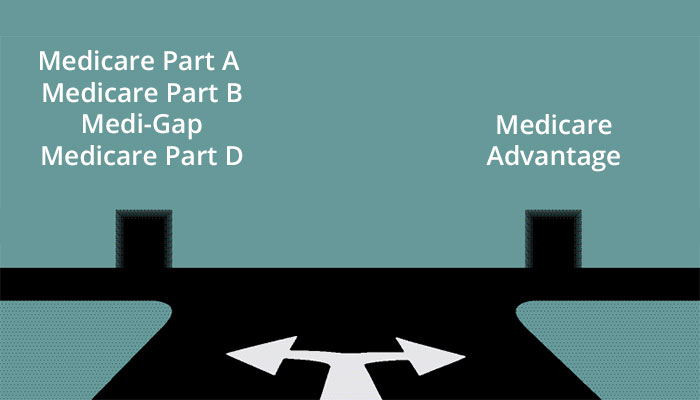
Once a year, Medicare offers the option to change plans. In 2021, the Open Enrollment period is October 15–December 7. Your loved one may be considering a switch to a “Medicare Advantage” plan. There are pros and cons.
Medicare “Parts.” People on “original Medicare” typically receive hospital coverage (Part A) and doctor care (Part B). In addition, they pay a yearly deductible and the 20% that Medicare does not cover. Or they purchase a supplemental plan, often called “Medigap” coverage. In either case, a prescription drug plan (Part D) is needed too. Medigap and Part D must be purchased from private insurance companies.
Medicare Advantage (MA) is another alternative. It bundles everything together. MA plans are offered by private insurers and vary widely.
On the plus side, MA plans
- offer lower monthly premiums. This is their key appeal.
- involve less paperwork. Most plans incorporate prescription coverage. Then there’s just one company to deal with for everything.
- can provide extra benefits. Depending on the policy, dental or vision coverage may be included. Or other benefits not available with original Medicare and Medigap.
On the down side, MA plans
- may involve higher out-of-pocket expenses. Premiums are lower. But deductibles and copays may be higher. MA plans may cost less for low-use patients. But once you start using services, you may spend more.
- restrict choice of doctors. Those on an Advantage plan can see only doctors in the plan’s network. This limits choice and flexibility. For instance, your loved one can’t seek out a research hospital for cutting-edge treatment.
- may not provide coverage while traveling. MA plans are very regional. Medicare and Medigap policies, on the other hand, work across the United States.
Contrast MA with Medigap. If your relative prefers paying the same fee each month, regardless of usage, original Medicare with Medigap is the better choice. A note of caution: If your relative leaves a Medigap policy, there is no guarantee of return. Existing medical conditions may cause premiums to skyrocket. Or block coverage altogether.

